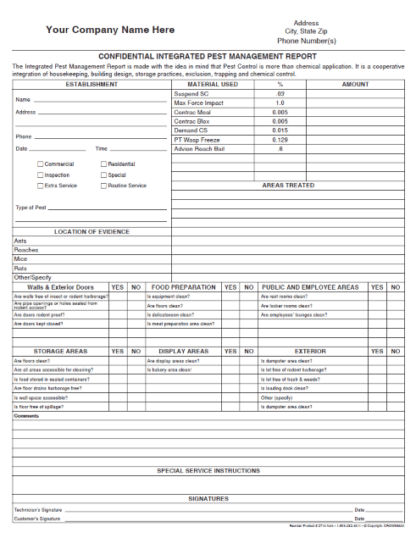Using Business Forms
Boost Efficiency and Organization
In the fast-paced world of business, maintaining efficiency and organization is crucial for success. One powerful tool that aids in achieving these goals is the effective utilization of business forms. By implementing well-designed forms, businesses can streamline processes, improve communication, and enhance the overall customer experience.
In this article, we will delve into the significance of business forms, explore their various applications, and provide valuable insights to help you make informed decisions regarding their implementation.
Website Forms: Enhancing User Engagement
In the digital era, websites play a vital role in establishing an online presence and engaging with customers. Website forms act as a bridge between businesses and their audience, enabling efficient communication and data collection. By utilizing website forms effectively, companies can gather valuable user data, tailor their offerings to meet customer needs and provide a personalized experience. Let’s take a closer look at some common website forms:
Contact Forms
Contact forms serve as a direct line of communication between your business and website visitors. They enable users to reach out with inquiries, feedback, or requests for information. By strategically designing contact forms, businesses can ensure prompt responses and efficient customer service.
Registration Forms
Registration forms allow users to sign up for memberships, subscriptions, or access exclusive content. Gathering relevant information through registration forms helps businesses understand their audience, target their marketing efforts, and deliver personalized experiences.
Payment Forms
In an e-commerce landscape, secure and user-friendly payment forms are vital. Integrating payment gateways into your website forms enables customers to make online purchases seamlessly, fostering trust and enhancing the shopping experience.
Feedback Forms
Gathering feedback from customers is invaluable for improving products, services, and overall customer satisfaction. Feedback forms allow businesses to collect opinions, suggestions, and complaints, facilitating continuous improvement and fostering strong customer relationships.
Electronic and Printed Forms: Choosing the Right Fit
While website forms dominate the digital realm, printed forms still hold significance in many business environments. Deciding between electronic and printed forms depends on several factors, and understanding their pros and cons is essential. Consider the following:
Online Forms
Online forms offer advantages, such as cost-effectiveness, accessibility, and real-time data collection. They eliminate the need for physical storage, reduce paper waste, and allow for instant data processing. However, online forms may not be suitable for all businesses, especially those operating in industries with specific compliance requirements or customers with limited internet access.
Printed Business Forms
Printed business forms have a long-standing history and continue to play a vital role in various sectors. They offer tangible documentation, maintain a traditional aesthetic, and are ideal for businesses that require physical records. Additionally, printed forms ensure compatibility with existing systems and cater to customers who prefer offline transactions. However, they involve printing and storage costs, manual data entry, and the risk of human error.
Archiving: Safeguarding Essential Documentation
Regardless of the form type, online or printed, archiving is an indispensable practice for every business. Archiving involves the systematic storage of inactive documents and forms, preserving them for future reference or legal requirements. Here are key considerations regarding archiving:
Importance of Archiving
Business forms are crucial assets that contribute to the success of a company. Archiving ensures compliance with regulations, facilitates audits, protects sensitive information, and allows historical data analysis. Whether in digital or physical format, proper archiving safeguards essential documentation.
Determining Archiving Needs
Each business must evaluate its specific archiving needs based on industry regulations, internal policies, and the nature of the forms. Assessing factors like retention periods, document accessibility, and data security helps determine the most suitable archiving approach.
Digital Archiving
With the advent of digital technologies, businesses increasingly embrace digital archiving solutions. Digital archiving offers benefits such as space efficiency, easy searchability, automated backups, and improved data accessibility. Implementing a robust digital archiving system ensures the preservation and retrieval of critical documents when needed.
Business forms are versatile tools that enhance efficiency, organization, and customer engagement. Whether through website forms or printed counterparts, businesses can benefit from strategically implementing various types of forms.
Understanding the unique requirements of your business, evaluating the pros and cons of different form formats, and adopting appropriate archiving practices are essential steps toward optimizing your operations. By embracing the power of business forms, you can streamline processes, improve communication, and position your company for sustainable growth in the dynamic business landscape.
